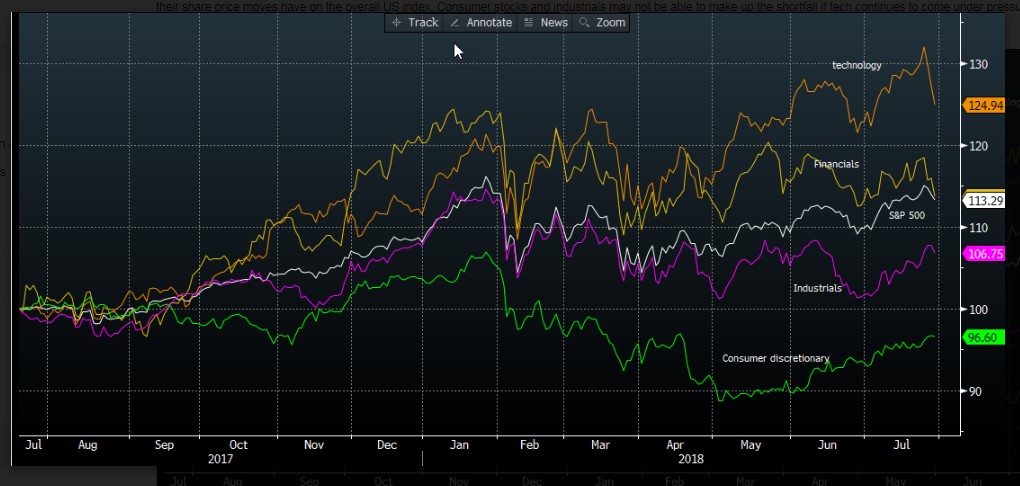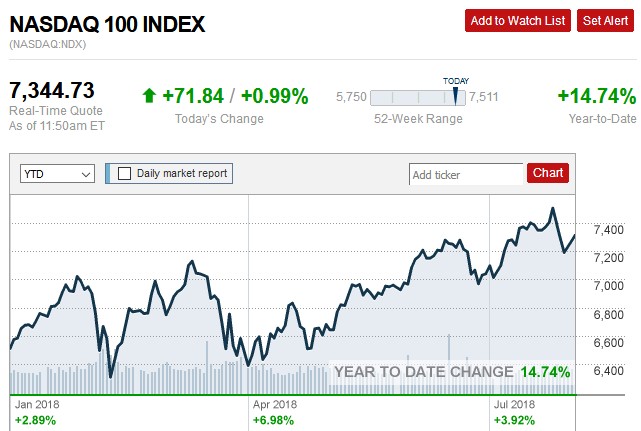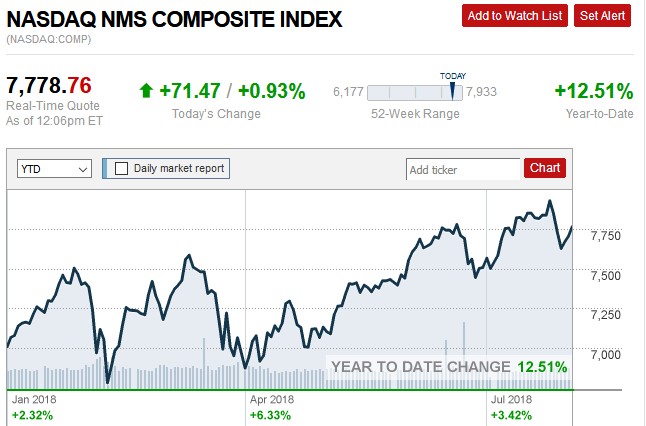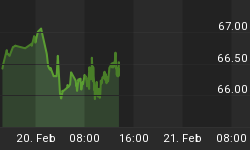Tech stocks have come under pressure over the past couple of weeks, and a section of Wall Street is now warning investors that it might be time to jump ship. While many blame tech woes by Facebook’s (NASDAQ:FB), which went through the worst one-day drop by any stock in history, as well as deep slides by Netflix (NASDAQ:NFLX) and Twitter (NASDAQ:TWTR), others are warning that the problem runs deeper than that and what is happening is heralding a late-cycle shift in the stock market.
One such analyst is Kathleen Brooks, research director at Capital Index, who sees money beginning to flow from tech to previously unloved plain vanilla stocks such as Walmart (NYSE:WMT) and General Electric (NYSE:GE).
Catchdown for Tech?
The tech sector has led other sectors in market gains this year, as it has over the past nine years. It’s therefore easy to make the assumption that it’s merely catching down while the laggards start catching up:

(Click to enlarge)
Source: MarketWatch
That argument, however, does not hold much water when you consider that the sector is still growing sales and earnings faster than the rest of the market. During the current earnings season, the tech sector is expected to report average revenue and earnings growth of 23.9 percent and 13.3 percent, respectively vs. 22.6 percent and 8.7 percent by the S&P 500. Related: Stock Markets At A Crossroads
Of the companies that have so far posted their Q2 2018 scorecards, 92 percent of tech stocks have exceeded earnings estimates with 86 percent beating revenue estimates. The same count for the S&P 500 is 82 percent and 72 percent, respectively.
Further, tech companies are engaging in copious buybacks, suggesting that company leaders believe the shares are undervalued. Share repurchases in the tech sector have surged 171 percent in the current year--though of course the fact that these companies are posting record earnings must be helping.
Other than acting as a vote of confidence, large buybacks also have a positive effect on future earnings, which in turn leads to even higher stock prices. It’s a virtuous cycle that cannot be overlooked.
Fundamental Fears Favor Value Stocks
Before proceeding, it’s important to view the current tech correction in the proper context.
This is not the first time it has happened to the sector nor is it the margin unusual. The sector has so far managed to make a comeback every single time it has received a hammering:

(Click to enlarge)

(Click to enlarge)

(Click to enlarge)
Source: CNN Money
It’s more likely that investors are chilling out on tech due to growing fears about the sustainability of business models by stalwarts such as FB, Netflix and Twitter. That, along with hefty valuations, is probably forcing them to reconsider cheaper value stocks.
Related: U.S. Shuts Down Foreign Software Testing
In fact, Nomura has just pointed out that we have witnessed the biggest three-day rotation from growth stocks to value stocks since the infamous Lehman Brothers selloff of 2008.
Valuation matters aside, trade wars are not helping either. The trade spat between the U.S. and China keeps getting worse with the U.S. now upping the ante by increasing tariffs on Chinese imports from the current 10 percent to 25 percent, while China is threatening to retaliate in kind. U.S. tech companies have high exposures to China, with many semiconductor chip manufacturers deriving more than 50 percent of their revenue in the Middle Kingdom.
That could prove disastrous if China makes good its threat.
That said, it’s important for investors to balance their portfolios by adding some value stocks to act as a hedge against market uncertainties bearing in mind that growth stocks tend to fare worse during market downturns than their value counterparts.
By Alex Kimani for Safehaven.com
More Top Reads From Safehaven.com

















